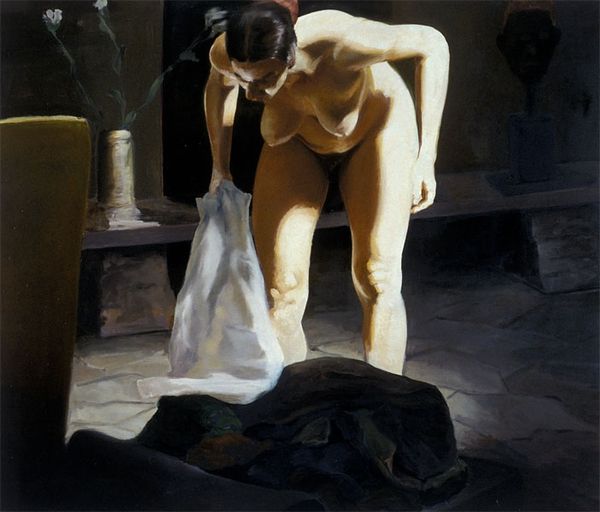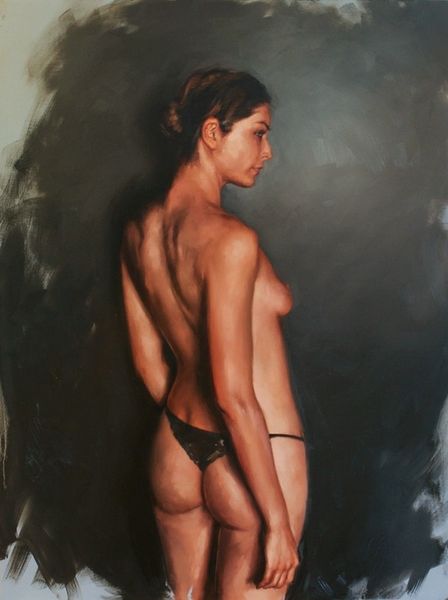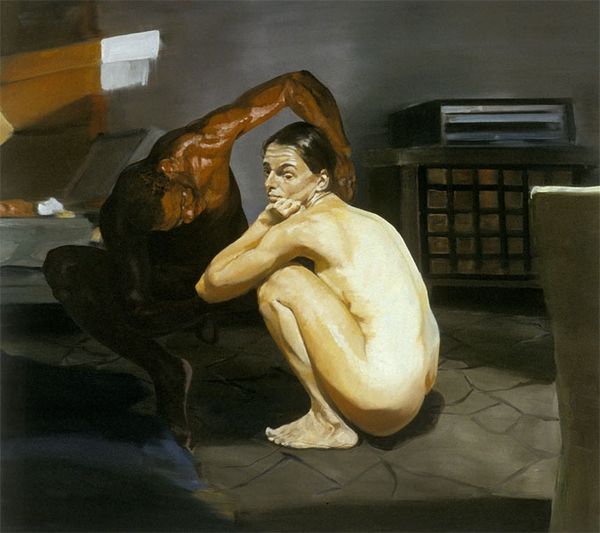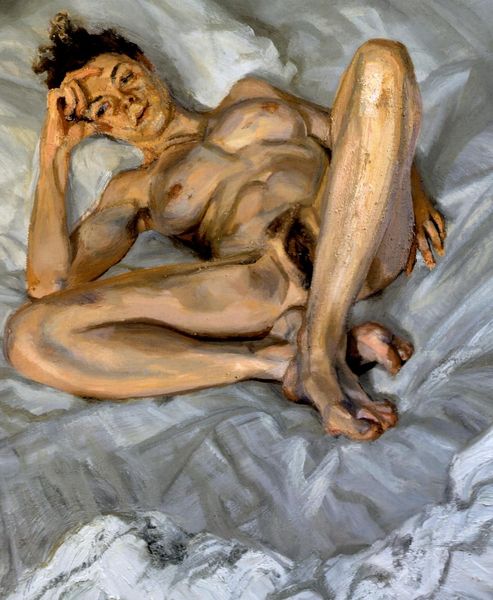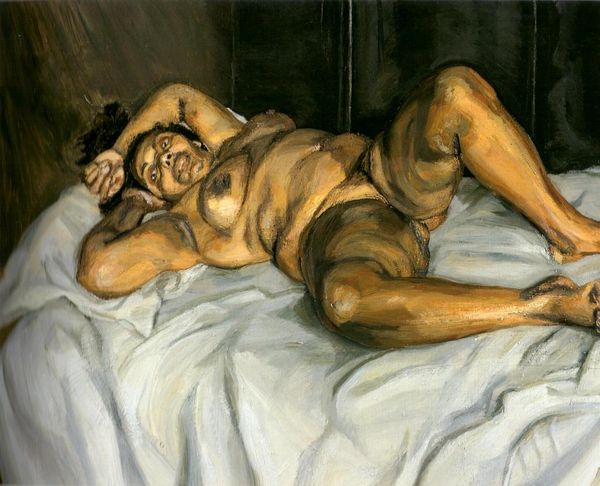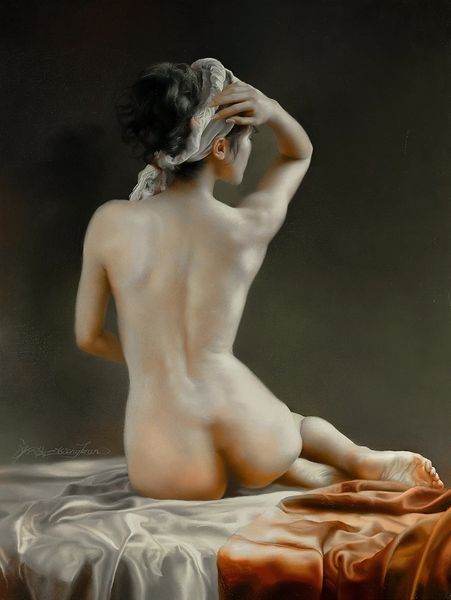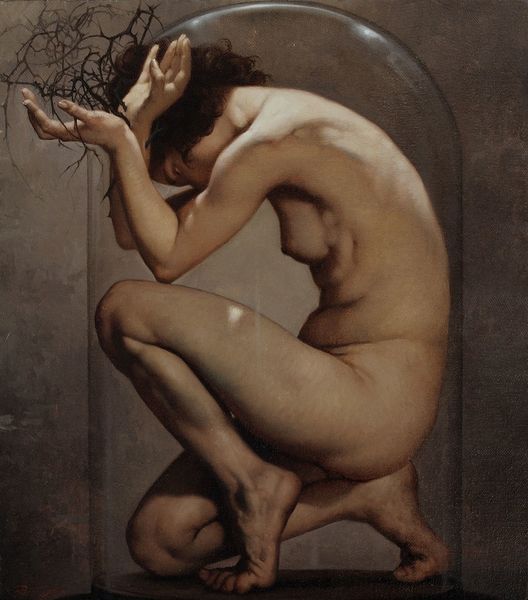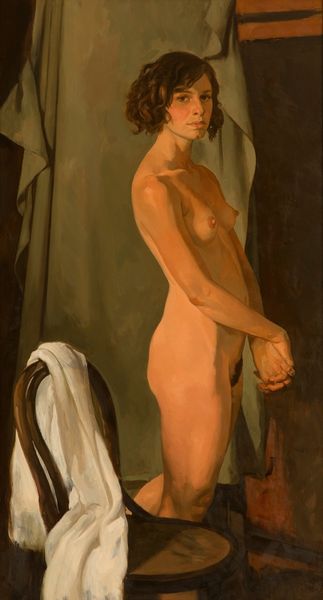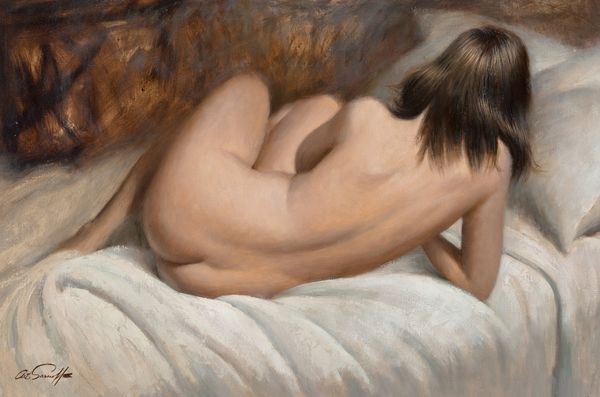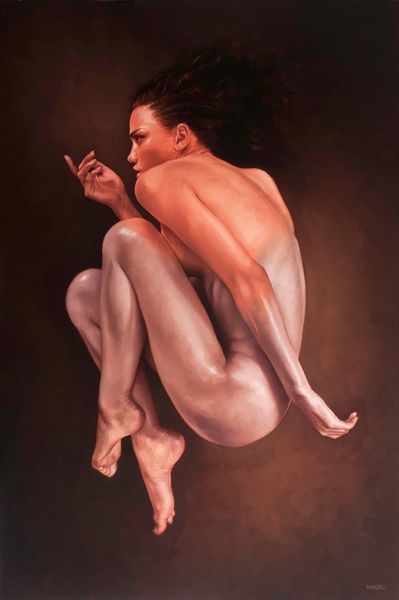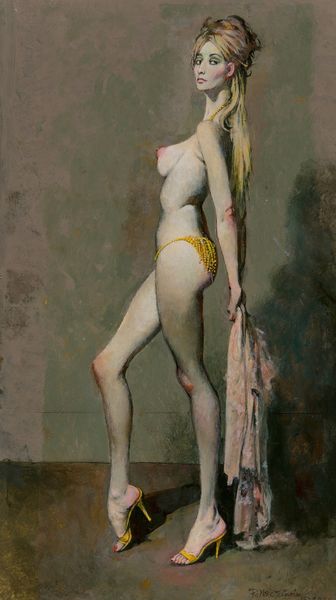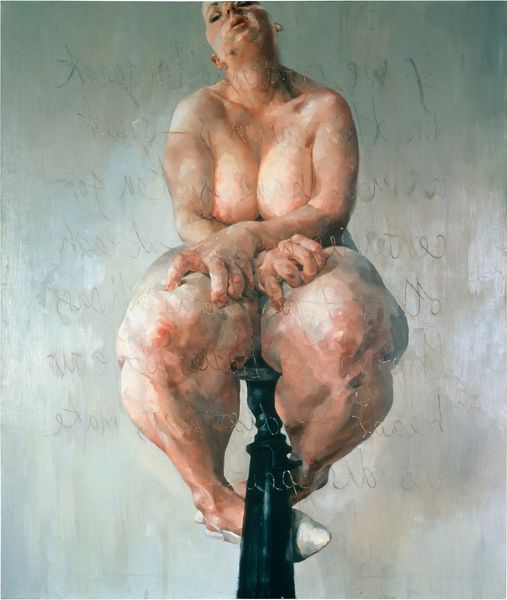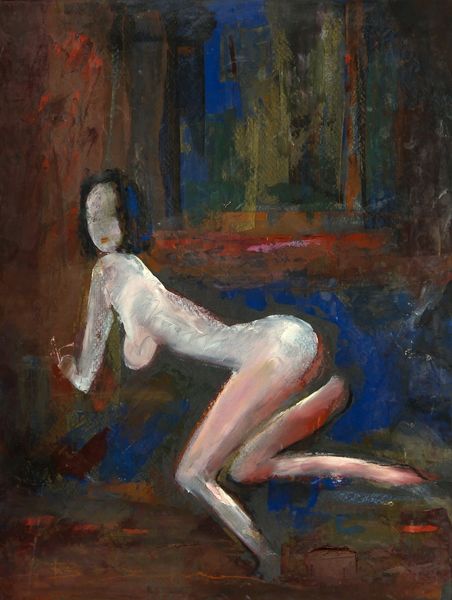
painting, acrylic-paint
#
contemporary
#
painting
#
acrylic-paint
#
figuration
#
female-nude
#
acrylic on canvas
#
nude
Copyright: Eric Fischl,Fair Use
Editor: Here we have Eric Fischl's acrylic on canvas from 1994, called "The Travel of Romance, Scene II." There's something so arresting, almost unnerving, about the woman's posture. What do you see in this piece? Curator: That posture is key. Think of ancient frescoes – that low perspective, the vulnerability made monumental. It echoes depictions of subservience, but Fischl twists it. Look at her gaze, averted yet defiant. This is a reclamation, perhaps a questioning of historical power dynamics imposed on the female form. Editor: So, you're suggesting her pose references older imagery, but with a critical eye? Curator: Exactly. The tiled floor feels almost clinical, cold. The title speaks of romance, yet the scene lacks tenderness. Is this the residue of romance, a raw confrontation with intimacy's aftermath? How does the stark light affect your interpretation? Editor: It intensifies everything, doesn't it? There's no softness, just hard edges and shadow. It makes the moment feel very present, immediate, but also somehow disconnected from any kind of warmth or connection. I wonder about that tension between the title and what we actually see. Curator: The power of images resides in their ability to provoke these tensions, these unsettling questions. It’s the viewer's discomfort that unveils the work's deeper meaning. Fischl is inviting us to dismantle idealized notions. Editor: This has been incredibly helpful. I'll definitely look at Fischl's work with fresh eyes now, thinking about cultural echoes and power dynamics. Curator: Indeed, may this illuminate a deeper understanding of the symbol's role in both shaping and challenging our cultural narratives.
Comments
No comments
Be the first to comment and join the conversation on the ultimate creative platform.
